How to replenish the vocabulary of the Russian language. How to quickly replenish vocabulary
We replenish vocabulary
1. A librocubicularist is a person who reads in bed.
2. Mamihlapinatapai - a look between two, when each hopes that the other will do what both want, but cannot decide to do.
3. Filigree - behave strangely, unusually
4. Lisztomania - the need to listen to music all the time. Is a disease
5. Pseudomenos - an argument that puts the interlocutor in a position when he is forced to lie.
7. Selfie - a picture of yourself, taken personally on mobile phone or a camera, as they say, from the hand.
8. Quintessence - the basis, the very essence of something.
9. Glossophobia - fear of public speaking.
10. Equivalence - ambiguous hints, evasions.
11. Deviant - a person who does not meet the norm.
12. Catharsis - a change in consciousness through strong experiences.
13. Ataraxia - peace of mind, equanimity, serenity, wisdom.
14. Deprivation - a feeling of insufficiency in meeting one's needs.
15. Amok - sudden violent mental disorder.
16. Frustration - period complete disappointment in life.
17. Palinphrasia - pathologically frequent repetition of certain words or phrases in speech (for example, "damn", "as if", "actually").
18. Antimony - chatter, empty talk (to breed antimony).
19. Hapophobia - fear of being touched by other people.
20. Mojo - originally an African magical amulet (amulet) for happiness and good luck, in modern cultures the word began to denote a positive state, something like a charming charisma, which, by the way, can be lost.
21. Fetish - the object of blind unconscious worship.
22. Distinia - depressed, dreary mood.
23. Gestalt - a form or image, as some kind of integral formations and the fundamental principle of the psyche.
24. Freak - a person who is bright, unusual, extravagant appearance and defiant behavior, as well as having an extraordinary worldview, which is the result of the rejection of social stereotypes.
25. Zugzwang - a forced move in a chess game that worsens the position of the player who made it. In a broad sense: a situation in which any action only worsens the situation.
26. Textrovert - someone who finds it easier to talk about his feelings in a text message than live.
27. Maxim - moralizing.
28. Zarf - a wrap (scarf) on the outside of a plastic coffee cup. Designed to not get burned.
29. Glabel is the designation of the area on the face of a person located between the eyebrows.
30. Vagitus - the cry of a newborn baby.
31. Snolligoster is a person guided by personal gain, and not official duties and universal principles.
32. Rasket - a strip (fold) on the inside of the wrist.
33. Trench - a leather loop on the belt that holds the free end of the fastened belt
34. Carcolepsy - a condition when a person immediately falls asleep as soon as the transport starts to move
35. Nerdle - the recommended amount of toothpaste for one cleaning
36. Misophonia - uncontrollable rage at a person who eats loudly or even breathes during a meal with you
37. Chunking - conscious or unconscious spitting food.
38. Petrikor - the smell of the earth after the rain.
39. Aglet - a metal or plastic lace tip that makes it easier to thread the laces.
40. Lunula - crescent at the base of the nail.
41. The path of desire is a road created naturally, simply because it is the shortest or most convenient.
42. Natiform - natural formations, usually trees, rocks, stones, which resemble female forms.
43. Mondegrin - incomprehensible words in songs.
44. Phosphenes are spots of light that you see when you close your eyes and press your fingers on the eyeballs.
45. Collywooble - rumbling in the stomach from hunger.
46. Punt - the bottom of a bottle of wine.
47. Ferrule - the metal part at the end of a pencil with an eraser.
48. Lemniscate - a sign of infinity.
49. Dysnia is a condition in which it is difficult to get out of bed in the morning.
50. Paresthesia - a feeling of tingling, numbness and goosebumps in the limbs.
51. Interrobang - when you use interrogative and exclamation marks simultaneously.
52. Defenestration is the act of throwing someone out of a window.
53. Filtrum - a vertical depression between the nasal septum and the upper lip.
54. Twilight rays - rays sunlight that pass through the gaps in the clouds.
55. Phloems are the long fibers on a banana peel.
56. Snellen table - a table used to test visual acuity.
57. Semantic saturation is a situation when a person says something for so long that the listener begins to perceive speech as repeated meaningless sounds.
58. Ideo-locator - an arrow indicating your current position on the map.
59. Gynecomastia - breast enlargement in men.
60. Obelus - a sign of division.
61. Frisson - chills while listening to music that you like.
62. Coprolalia - a painful, sometimes irresistible impulsive attraction to cynical and obscene abuse without any reason.
63. Mamihlapinatapay (mamihlapinatapei) - a word from the Yagan language of the Yagan tribe (Tierra del Fuego), is listed in the Guinness Book of Records as the “most capacious word” and is considered one of the most difficult words to translate. It means "A look between two people, which expresses the desire of each that the other will become the initiator of what both want, but neither wants to be the first"
64. Enantiosemy is a term for a situation where one word has two opposite meanings. For example, in the phrase "listen to a lecture", the verb "listen" can be understood as both "perceive" and "get distracted and not hear." There is also interlingual enantiosemy, which quite often manifests itself in Slavic languages. Polish uroda means "beauty", woń - "smell, aroma", zapominać - "to forget"; in Czech, čerstvý means “fresh”, potraviny means “products”, ovoce means “fruit”, pozor! - "attention!", úžasný - "delightful"; Serbian "harmful" is translated as "value", and "diarrhea" - "pride".
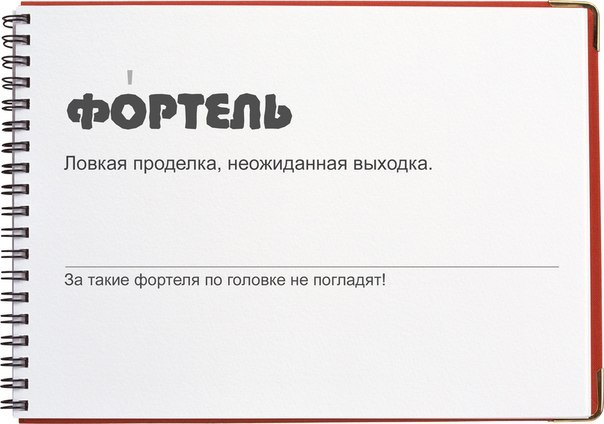
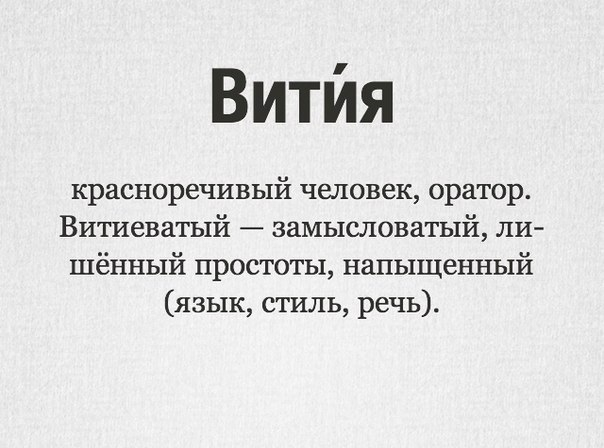

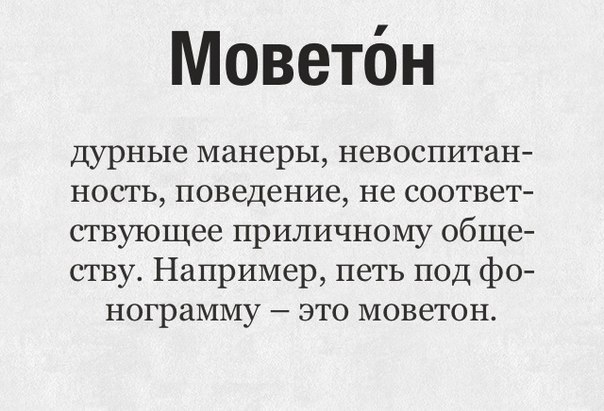


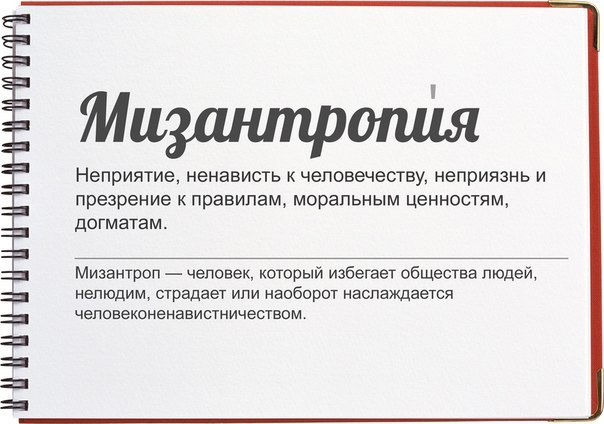
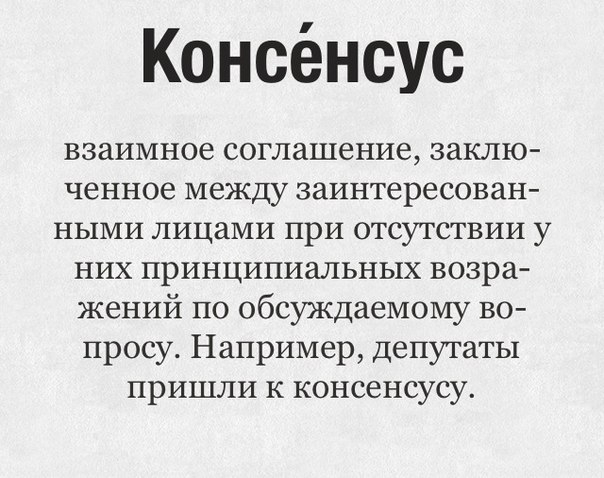
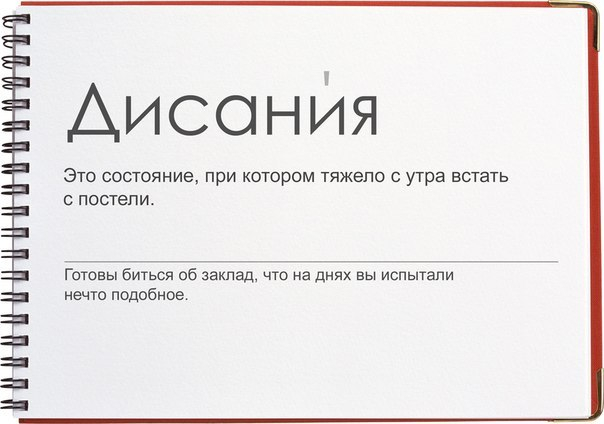


Are you familiar with the situation when you speak English and cannot fully express an idea because you do not know the right word?
Small vocabulary is a common problem. Its size determines how freely you can express your thoughts on English language.
In this article you will learn:
- How to learn English words to expand vocabulary;
- The best ways extensions vocabulary;
- 3 tips to replenish your stock quickly English words.
How to learn words correctly in order to increase the vocabulary of English words?
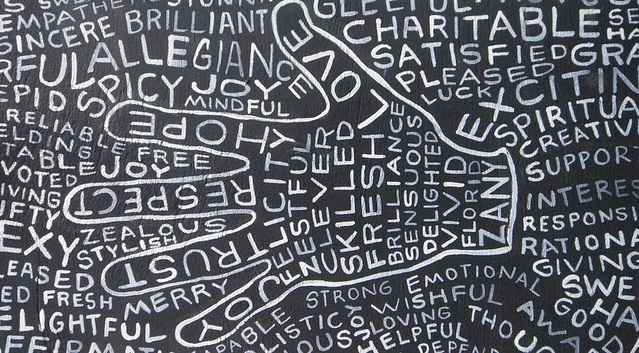
The main reason for the lack of vocabulary growth is the wrong method of learning new words. This is when you learn words, and after 3-5 days you remember only a small part.
If you learn English words correctly, then the vocabulary will gradually expand, and you will not forget the words. Follow these tips so you don't waste your time.
1. Learn fewer words, but do it well.
It makes no sense to learn a lot of words if in the end you remember only a few. Do not take 50 words at once. Better take 10-15 words, but work with them properly.
2. Use an English-English dictionary.
Of course, it is easier to see the translation of a word in an electronic translator or Russian-English dictionary. But using an English-English dictionary gives certain "pluses":
- You can easily understand the meaning of the word. Indeed, in such dictionaries, not the translation of the word is given, but its meaning (in English).
- Learn similar (synonyms) and opposite words (antonyms) that are given to each word.
- In the English-English dictionary are given set expressions where this word is used.
On the entry levels a bilingual dictionary (English-Russian) should be used.
3. See not one, but all the meanings of the word.
Most often, one word has several meanings, and they are completely different. For example, the word break can mean both a hole in something (a crack, a hole) and free time from work (a break).
The more meanings of one word you know, the more correctly you will be able to use it.
4. Constantly use the words you know.
No matter how well you remember a word, if you don't use it, you will forget it. Constantly use the words you have learned.
If you do not have the opportunity to communicate in English every day, then you can mentally describe what you see and learn to think in English.
The Best Ways to Expand Your English Vocabulary

These are the most popular ways to help you learn a lot of new words and expressions.
1. Watch movies and series in English.
Who doesn't like to look interesting film or series? By doing this in English, you will expand your vocabulary.
Be sure to select a movie / series according to your level of English proficiency. After all, if there is too much unknown words you just get tired of watching it.
You can also focus on what vocabulary you need more. For example, when watching the series "Friends" you can replenish your vocabulary with everyday expressions, while watching the series "The Office" - with working vocabulary.
2. Listen English songs and podcasts.
You can always find many interesting and useful expressions in songs. But from passive listening, you will never increase your vocabulary. You need to do it right.
Listening to podcasts is also very helpful. You can choose a podcast according to your level and choose any topic that interests you.
3. Read English books and articles.
Reading is another popular way to build up your vocabulary. However, do not forget that if you want to remember the words, you need to work through them, and not just sign the translation with a pencil over an unknown word.
4. Solve crosswords and play games.
Now there are many games that are aimed at training and memorizing new words. Solve crossword puzzles, add words from letters, look for the right words, etc. All this will help you to replenish your vocabulary and repeat the words you already know.
Movies, series, songs, podcasts, and games will help you gradually increase your vocabulary. But what if you need to top it up within a short period of time? We will open 3 ways that will allow you to do this.
3 Tips to Improve Your English Vocabulary Quickly
1. Learn lists of words on one topic.
Learning words that are united by one topic is much easier than learning everything mixed up.
To do this, you need to take 10-20 words related to one topic. For example, animals, interior items, work, travel, etc. Be sure to choose a topic that is interesting and necessary for you. Why do you need to learn car parts if you don't face it in life?
Have you learned words about work? Make up short story about what duties you perform and how your work day goes. If you don't have a job yet, dream and talk about your dream job.
If you are learning a language in a group, you can act out skits. It's very fun and helpful. Imagine that one person is an employer, and the other has come for an interview.
2. Learn the most used words.
There are words that people use very often, and there are those that are rarely used.
It is much more useful to learn words that you can use in any situation. For example, in the list of words "work" it is much more useful to include the words: employer, employee, hire, fire, work schedule, etc. These are the words you really need.
If you learn specific words that are not related to your work, you are unlikely to use them. And, as I wrote above, if you do not use words, then you will forget them.
3. Learn the words that are around you.
This exercise will allow you to test and improve your English vocabulary. Look around the room / office / park / restaurant where you spend time. What do you see?
Name each item you see. If you don't know a word, write it down. As a result, you will make your own list of words that you can learn. Thanks to him, you will know the names of the objects around you.
So, if you follow all the methods described in the article, you can significantly replenish your vocabulary. And you definitely won’t have a situation where you want to say or ask something, but you don’t know the right English word.
Friends, how do you learn English words?
General
Vocabulary replenishment
LEV TOLSTOY: "TO COMMUNICATE WITH THE LANGUAGE SOMEWHERE - MEANS AND TO THINK SOMEWHERE."
- Approbation
- Vernissage
- Devaluation
- Idiom
- Pun
- Cannonade
- COHORT
- Legion
- Marina
- Polysemy
- RAVELIN
- Reminiscence
- Sacramental
- Synecdoche
- Syntagma
- Sonorant consonants
- Toponym
- Phantasmagoria
- Pleonasm
- Allegory
- Nihilism
- Cacophony
- tower-
- Esperanto
- Idiosyncrasy
- Transcendental( transcendents)
- Metaphysical
- Scholasticism
- Esoterics
- Truism (true)
- Glossary
- Euphemism
- The cognitive dissonance
- Eclecticism
- Epistemology
- Invectives
- Binomial theorem
- Voluntarism
- Congruence
- Decadence
- addiction
- gender
- Homogeneous
- Ubiquists
- uence
- frustration
- Vanguard
Goal Accomplishment Criteria
1) Approbation (Latin approbatio - approval, recognition):
2) Vernissage (fr. vernissage, literally - varnishing) - opening art exhibition in a solemn atmosphere, which is attended by specially invited persons
3) Devaluation (lat. de - decrease; lat. valeo - to matter, cost) - a decrease in the gold content of the monetary unit under the gold standard
4) IDIOMA, -y, f. In linguistics: a turn of speech, the meaning of which is not determined by the individual meanings of the words included in it, for example. to beat the buckets, to sharpen the frills.
5) Pun - A joke based on the comical use of words that sound similar, but have different meanings, a play on words.
6) Cannonade - sounds of shots from artillery pieces
7) COHORT, 1. B Ancient Rome: a detachment of troops, a tenth of a legion. 2. trans. Strongly united group of associates (high)
8) Legion (lat. legio, genus case legionis - military collection, call, from lego and legere - to collect) - the main organizational unit in the army of Ancient Rome.
The legion consisted of 5-6 thousand (in later periods 4320) foot soldiers and several hundred horsemen
9) Marina (fr. marine, ital. marina, from lat. marinus - marine) - genre visual arts depicting a sea view
10) Polysemy (from the Greek πολυσημεία - “polysemy”) - polysemy, multivariance, that is, the presence of a word (language unit, term) of two or more meanings, historically determined or interconnected in meaning and origin.
11) RAVELIN m. 2) One of the ravelins of the Peter and Paul Fortress, turned by Peter I into a prison for his son Alexei and later used by the tsarist government to imprison political criminals; Alekseevsky ravelin.
12) Reminiscence (Latin reminiscentia, recollection) - an element art system, which consists in using overall structure, individual elements or motifs previously famous works art on the same (or related) topic.
(Example of reminiscence)
13) Sacramental - religion. related to religious cult ritual, ritual
14) Synecdoche (ancient Greek συνεκδοχή - ratio, literally - “comprehension”) - a trope, a kind of metonymy, based on the transfer of meaning from one phenomenon to another on the basis of a quantitative relationship between them. Usually used in synecdoche:
Singular instead of plural: "Everything is sleeping - both man, and beast, and bird." (Gogol);
Plural instead of singular: "We all look at Napoleons." (Pushkin);
A part instead of a whole: “Have you any need? “In the roof for my family.” (Herzen);
Whole instead of part: "Japan has opened in different directions." (Stock news); (instead of: shares on the Tokyo Stock Exchange);
The generic name instead of the specific one: "Well, sit down, luminary." (Mayakovsky) (instead of: the sun);
The specific name instead of the generic one: "Better than all, take care of the penny." (Gogol) (instead of: money).
15) Syntagma (ancient Greek σύνταγμα, lit. "order", from other Greek σύν "s" and other Greek τάγμα "order") - a polysemantic term, translated as classification, systematization; arrangement, placement.
16) Sonorant consonants- Sonorants are distinguished from other voiced consonants by the fact that noise practically does not participate in their formation (l, m, n, p, j.)
17) Toponym - a proper name, which is the name of a separate geographical object
18) Phantasmagoria - bizarre, fantastic events, incidents
19) Pleonasm (other - Greek πλεονασμός - superfluous) - a turn of speech in which words partially or completely coinciding in meaning are repeated unnecessarily. Examples: "elderly old man", "young
young man", "see with my own eyes", "month of May"
20) Allegory - allegory, expression of an abstract concept through a specific image (Example: allegory "justice" - a woman with scales)
21) Nihilism (from lat. nihil - nothing) - a worldview position, expressed in the denial of the meaningfulness of human existence, the significance of generally accepted moral and cultural property, non-recognition of any authorities.
22) Cacophony (ancient Greek κακός - bad and other Greek φωνή - sound) - combinations of sounds perceived as a chaotic and meaningless heap.
23) Kalancha - watch tower, fire station tower
24) Esperanto - artificial (planned) international language, created mainly on the basis of the vocabulary and grammar of the most common European languages
25) Idiosyncrasy (idios) - intolerance. For example: I have an idiosyncrasy for fools!
26) Transcendental (transcendens) - abstract, academic, mental, speculative, mental, theoretical. Somewhere like that. In connection with the breadth of the concept, it is recommended that the term be widely used, where it is necessary and where it is not necessary.
27) Metaphysical - about the same as Transcendental. The term is good for answering a question, the essence of which you did not understand. For example, like this - "How do you feel about scholasticism? - In a metaphysical sense?"
28) Scholasticism is a medieval philosophical trend. To my list smart words scholasticism is included by me solely because of the beautiful name.
29) Esotericism (from other Greek ἐσωτερικός - internal) - a set of special ways of perceiving reality that have a secret content and expression in "psycho-spiritual practices"
30) Truism (true) - a well-known opinion or statement. A typical example of a truism is "The Volga flows into the Caspian Sea."
31) Glossary - a dictionary of highly specialized terms in any branch of knowledge with an interpretation
32) Euphemism - replacing rude or harsh words and expressions with more
soft. Among the people, the phenomenon received a very biting and precise formulation.
33) Cognitive dissonance (from the Latin words: cognitio - “knowledge” and dissonantia - “dissonance, dissonance, lack of harmony”) - a state of mental discomfort of an individual caused by a clash in his mind of conflicting ideas: ideas, beliefs, values or emotional reactions.
34) Eclecticism - a combination of heterogeneous views, ideas and theories.
35) Epistemology - the theory of knowledge, the main part of philosophy, considering the conditions and limits of the possibility of reliable knowledge.
36) Invectives - obscene, areal abuse, swearing. Often used in combination with invective vocabulary.
37) Newton's binomial - a formula for representing the degree of the sum of two numbers. It is used, as a rule, as an expression of something complex as opposed to something simple. For example: "I also need Newton's binomial!
38) Voluntarism is a doctrine that puts a strong-willed principle in the foundations of being. In our time, it is used as an evaluative term for the actions of a person that you personally do not like. Eg. : "Vanya drank all the tequila. This is pure voluntarism!"
39) Congruence is a very rich word. One of my favorites. Means a state of integrity and complete sincerity, when all parts
individuals work together towards the same goal. Also often used with the prefix not. A very congruent word.
40) Decadence-decadence
41) Addiction - dependence. Eg. Internet addiction. Like mine.
42) Gender - sexual. Intergender, respectively, - intergender.
43) Homogeneous - homogeneous. For example: "The homogeneity of this yoghurt is beyond doubt."
44) Ubikvist - species of plants and animals that live everywhere. Do not get carried away with this term, anyway, no one knows it, except for you and me.
45) Cavalcade-a group of riding horsemen
46) Frustration - disappointment. our life is a chain of frus
47) Vanguard - Part of the troops (or fleet), located in front of the main forces. The leading, leading part of some social group. In the forefront of the democratic movement (in front, in the forefront).
helps to impress career ladder. This is not about using a couple of learned smart phrases, but about colorful dialogue. An interlocutor who correctly builds sentences and uses interesting words attracts the attention of people. With such a person I want to make friends, it is pleasant to communicate with him. Anyone can learn this skill. How to replenish your vocabulary?
Vocabulary check
Before proceeding to practical exercises, make sure your speech is sparse and banal. Striving for perfection is welcome, but you risk overdoing it. As a result, you will not look like an educated and erudite person, but a bore and a conceited nerd.
To check your vocabulary, take dictionary. Then open the book to any page and read the words. Honestly mark the ones you hear for the first time and do not know the meaning. The next step is to count the number of familiar words and multiply by the number of dictionary pages. The resulting figure displays the vocabulary. For a foreigner, the average is up to 5,000 words, for a native speaker, twice as much.

How to replenish your vocabulary with smart words?

Let's get started and make new friends. If the interlocutor does not use unfamiliar speech turns, then you should not end the conversation. Practice using the new words by having company conversations, discussing a movie that's been released, or presenting a project to your boss. Practice helps to enrich vocabulary. Pay attention to closed people, those who live on their own or. The speech of such individuals is poor, so verbal turns are replaced by gestures.
How to replenish vocabulary and deliver speech correctly?

A few tips for those who are not ready for reading and everyday work. The easiest way is to solve crossword puzzles. A large selection of various charades is presented on the shelves of the store. The method is interesting in that it is easier to guess the word, because several letters are known. The subconscious mind throws up the desired option, long recorded in the memory of a person. At the same time, a person not only remembers forgotten words, but also learns their meaning. Daily exercise greatly improves intellectual development. By the way, there are crosswords dedicated to specific topic. By choosing such collections, you can quickly type new words in the desired area.

How to replenish vocabulary?

To replenish the vocabulary does not require a titanic effort. Get started today by reading a chapter of a book you bought a long time ago or listening to an audio recording on a topic of interest. In any business, consistency is key. The same goes for learning new words. Working on vocabulary for just 1 hour a day, you will expand your knowledge base, gain confidence in business meetings and get intellectual development.
- Burns, Robert - short biography
- The concept of common vocabulary and vocabulary of limited use
- Nancy Drew: The Captive Curse Walkthrough Nancy Drew Curse of Blackmoore Manor Walkthrough
- Deadpool - Troubleshooting
- Won't start How to Survive?
- What to do if bioshock infinite won't start
- Walkthrough Nancy Drew: Alibi in Ashes
- Spec Ops: The Line - game review, review Spec ops the line crashes on missions
- Room escape level 1 walkthrough
- Processing tomatoes with boric acid How much will 2 grams of boric acid
- Cucumber Grass (Borago)
- Bioinsecticide Lepidocid: purpose, properties and application procedure Lepidocide waiting period
- How to change the language to Russian in steam
- Dendrobium noble: room care
- Morphology of plants general concepts - document
- Planting, propagation and care of bamboo at home, photo Growing bamboo from seeds
- How to strengthen the cellular signal for the Internet in the country
- Sanskrit reveals the forgotten meaning of Russian words (2 photos)
- The oldest language Sanskrit programming language of the future Dead language Sanskrit
- Who has dominion over all the earth?









